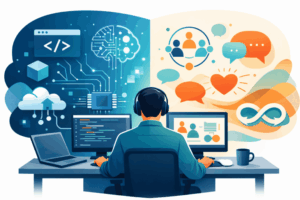What Gen AI Means for Your Career in 2025 (And Why You Should Start Now)
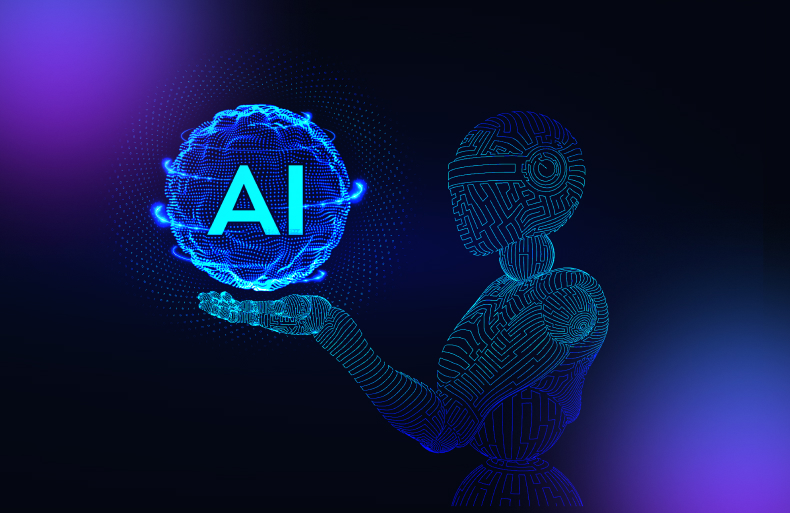
By the time you graduate, Gen AI will be more than just a tech buzzword. It’ll be a required skill across industries. In 2025, employers won’t ask if you’ve used AI. They’ll ask how you’ve used it. Generative AI is rapidly transforming how work gets done. Whether it’s writing, coding, designing, or data crunching, AI is already automating routine tasks, speeding up innovation, and setting new expectations for entry-level talent. And here’s the hard truth: students who master Gen AI now will have a massive advantage. Those who ignore it will fall behind.
How Gen AI Is Replacing the Traditional Hiring Process?
According to a 2024 McKinsey report, over 60% of organizations have embedded Gen AI into at least one business function, up from just 15% two years ago.
- Developers use Gen AI tools like GitHub Copilot to generate code, fix bugs, and boost productivity.
- Recruiters are using Gen AI to screen résumés and assess candidate fit.
- Marketing teams use tools like Jasper and ChatGPT for campaign planning.
- Product managers rely on AI to analyze user feedback and trends.
If you’re still treating AI like a college cheat tool, you’re missing how employers are using it to evaluate and enhance talent.
Gen AI Doesn’t Replace Jobs. It Replaces Job Descriptions.
Most students worry that Gen AI will take away their jobs. In reality, it’s rewriting what those jobs look like.
For example:
- Writers are now expected to ideate faster and use AI to scale content.
- Designers use Gen AI to prototype faster using tools like Adobe Firefly.
- Developers use GitHub Copilot to handle 30-40% of repetitive code
When you know how to use these tools well, you’re not just more efficient, you’re more prepared for real-world work.You don’t need to master everything. But understanding how Gen AI can support your role gives you a clear edge over others who are still doing everything manually.
In-demand AI Skills in 2025 (That Aren’t Just for Engineers)
You might think Gen AI is only for CS majors. But here are cross-functional skills that recruiters are already adding to job descriptions:
| Skill | Why It Matters |
|---|---|
| Prompt engineering | Knowing how to ask the right questions from AI tools |
| AI collaboration | Using Gen AI to assist in daily tasks |
| No-code AI tools | Creating quick workflows without deep tech knowledge |
| AI ethics awareness | Understanding biases and responsible usage |
| Portfolio building | Showing actual AI-assisted work, not just certifications |
Pro tip: Many startups now prefer candidates who can prototype ideas using no-code + AI instead of those who wait for engineering support.
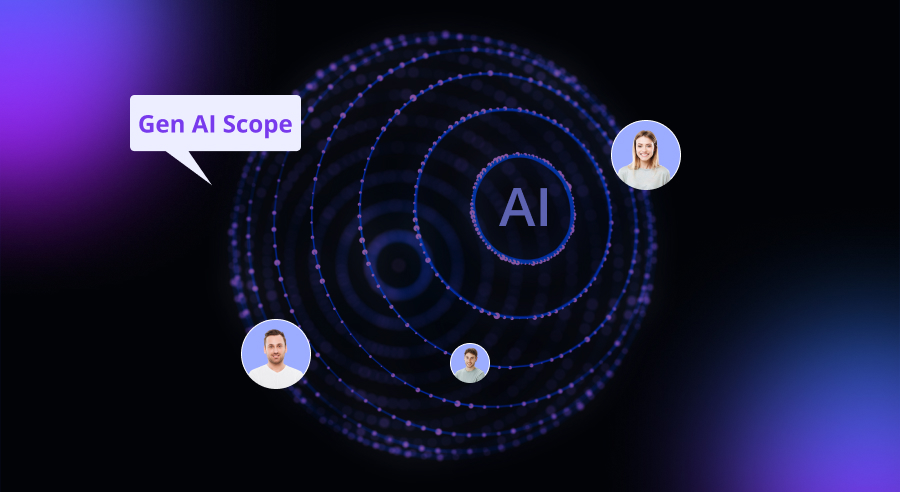
What Jobs Will Look Like by the Time You Graduate
Let’s take a quick look at some real-world shifts already in motion:
- Marketing Internships now expect experience with ChatGPT or Jasper
- Finance roles ask for familiarity with AI forecasting tools like AlphaSense
- Design roles require knowledge of AI-enhanced tools like Canva Magic Design
- HR roles use AI to screen CVs and predict attrition
This is just the start. According to PwC, AI could automate up to 30% of work tasks by 2030, especially in entry-level roles(3). That means you need to focus on skills AI can’t replace—judgment, creativity, and strategy—while collaborating with AI for execution.
What You Can Do (Starting This Week)
Here’s a roadmap to get started, without burning out:
WEEK 1:
- Sign up for a Gen AI introduction course
- Watch at least 3 YouTube videos on ChatGPT, Bard, or Copilot
- Try creating a social media post or LinkedIn bio using AI
WEEK 2:
- Pick a real-world task (assignment, blog, or project)
- Use AI to assist — not replace — your effort
- Document what worked, what didn’t
WEEK 3:
- Learn about prompt engineering
- Build a basic chatbot using no-code tools like Chatfuel or Botpress
- Start an “AI Portfolio” on Notion or GitHub
This isn’t about mastering everything overnight. It’s about showing progress, step by step. Recruiters notice that.
Ready to Build Your Gen AI Portfolio?
SkillStone’s Gen AI Explorer is built for students like you.
- No jargon.
- No assumptions.
- Just real tools, real projects, and real mentorship.
Explore the course now!
Start now, and your future self will thank you.
Conclusion
In 2025, employers won’t just value technical degrees or work experience. They’ll look for candidates who demonstrate how they’ve used Gen AI to learn faster, solve real problems, and drive outcomes.
Industries are moving toward hybrid roles where creativity, analysis, and AI collaboration intersect. Whether it's generating content, analyzing data, or improving workflows, those who know how to integrate Gen AI into their toolkit will lead from the front.
This is not a trend that will pass. It’s a shift in how careers begin, grow, and evolve. Students who start now, experimenting with tools, understanding ethical implications, and building AI-supported portfolios, will have a meaningful head start.
If you're waiting to feel ready, you may already be late. The most important skill in this transition is the ability to learn, adapt, and apply.
Start small. Stay consistent. And build forward, with Gen AI as your advantage.
FAQs
Q. Can I mention Gen AI in my résumé?
Yes, especially if you’ve used it in internships, projects, or freelance work. List tools, projects, and results.
Q. Is it risky to use Gen AI for college assignments?
Use it responsibly. AI is a learning aid, not a shortcut. Never submit AI output without your own input and understanding.
Q. What’s the best way to stand out with Gen AI?
Create a mini-portfolio. Showcase prompts, outputs, and where you added value. Bonus: add screenshots!
Q. Do companies test Gen AI skills in interviews?
Some already do. You might be asked to complete a task using AI or explain how you’d use AI to optimize a process.
Statistics Reference:
You may also like
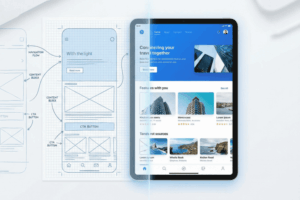
UI vs UX Design: The Difference Every Designer Should Know in 2026
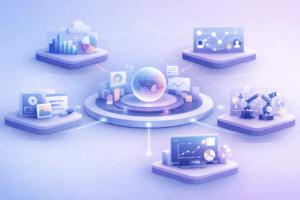
What Marketers Must Own in an AI-Driven Marketing Landscape
